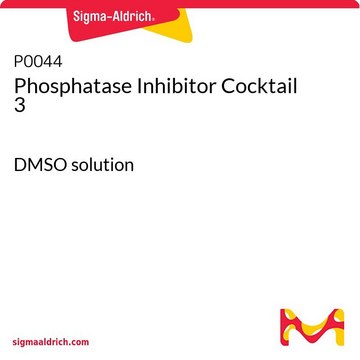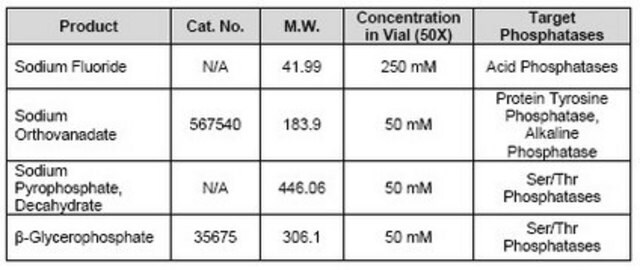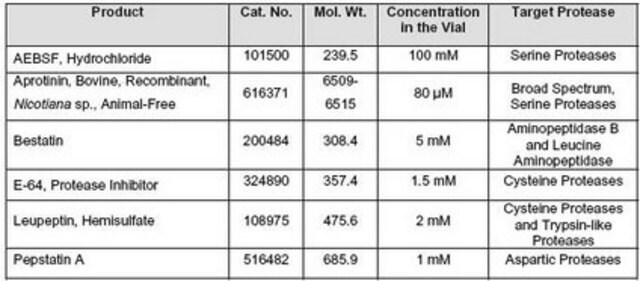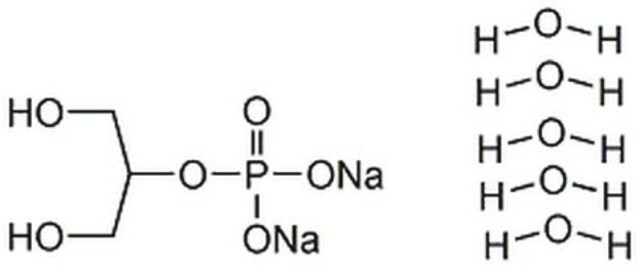524627
Phosphatase Inhibitor Cocktail III
liquid, for the inhibition of serine/threonine and protein tyrosine phosphatases
Synonym(s):
Phosphatase Inhibitor Mix (Set III), Phosphatase inhibitor
About This Item
Recommended Products
product name
Phosphatase Inhibitor Cocktail Set III, Phosphatase Inhibitor Cocktail Set III is a ready to use cocktail of four phosphatase inhibitors for broad-spectrum inhibition of both serine/threonine and protein tyrosine phosphatases.
form
liquid
manufacturer/tradename
Calbiochem®
storage condition
OK to freeze
shipped in
wet ice
storage temp.
−20°C
General description
Application
- as a supplement in lysis buffer to prepare protein lysates of whole testes for western blotting
- to fortify ice-cold lysis radio-immunoprecipitation assay (RIPA) buffer to homogenize larval hindguts for western blot analysis
- as a component in cell lysis buffer to extract total proteins for western blotting
Biochem/physiol Actions
Serine/threonine and protein tyrosine phosphatases
Features and Benefits
- Ready-to-use formulations for convenient use
- High-quality products for consistent and reproducible performance,
- Flexible options with a range of cocktails targeting different categories of phosphatases
Components
- 50 mM Sodium Fluoride
- 10 mM ß-Glycerophosphate (Cat. No. 35675)
- 10 mM Sodium Pyrophosphate Decahydrate
- 1 mM Sodium Orthovanadate
Warning
Physical form
Reconstitution
Legal Information
Storage Class Code
12 - Non Combustible Liquids
WGK
WGK 2
Flash Point(F)
Not applicable
Flash Point(C)
Not applicable
Certificates of Analysis (COA)
Search for Certificates of Analysis (COA) by entering the products Lot/Batch Number. Lot and Batch Numbers can be found on a product’s label following the words ‘Lot’ or ‘Batch’.
Already Own This Product?
Find documentation for the products that you have recently purchased in the Document Library.
Customers Also Viewed
Our team of scientists has experience in all areas of research including Life Science, Material Science, Chemical Synthesis, Chromatography, Analytical and many others.
Contact Technical Service














